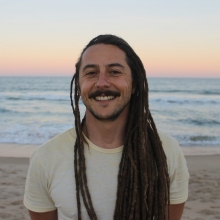Research/Career Interests:
I am behavioral ecologist interested in understanding the dynamics of social, cultural and ecological systems and other networked biological phenomena by combining multiple types empirical data on social animals and multiple analytical and modeling tools. I enjoy engaging in theory-driven research that is empirically-based and has real-world implications for conservation of wildlife, human welfare and the environment we share.
Education:
PhD in Biology, Dalhousie University, Canada
MSc in Ecology, Universidade Federal de Santa Catarina, Brazil
BSc (teaching) in Biological Sciences, Universidade Estadual de Campinas, Brazil
Professional Affiliations:
Department of Ecology and Zoology, Universidade Federal de Santa Catarina, Brazil
Center for Marine Studies, Universidade Federal do Paraná, Brazil
School of Animal, Plant and Environmental Sciences, University of Witwatersrand, South Africa
Department for the Ecology of Animal Societies, Max Planck Institute of Animal Behavior, Germany
Conservation Behavior Committee, Animal Behavior Society
Honors and Awards:
2024 Savery Outstanding Young Faculty, CAS, OSU
